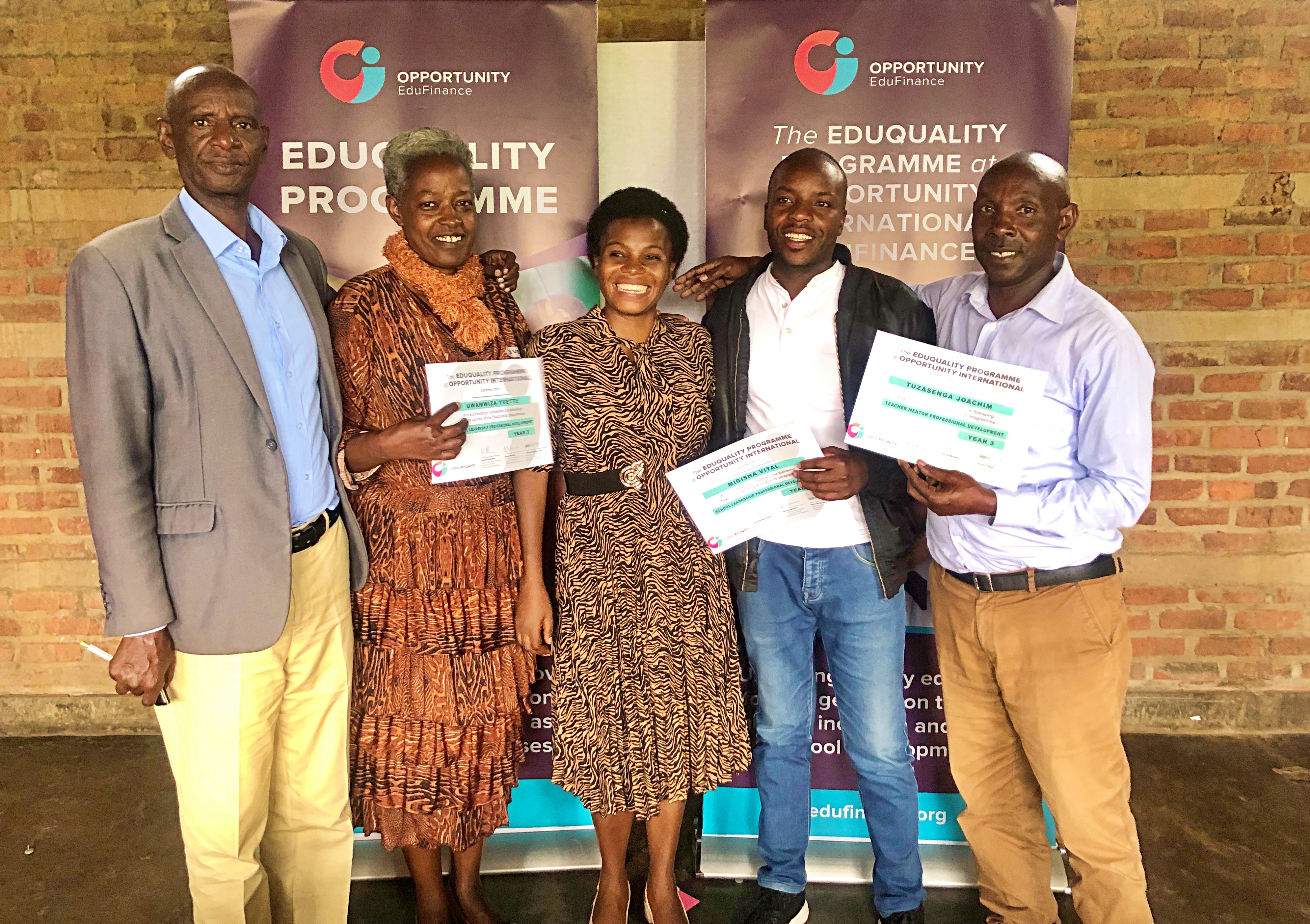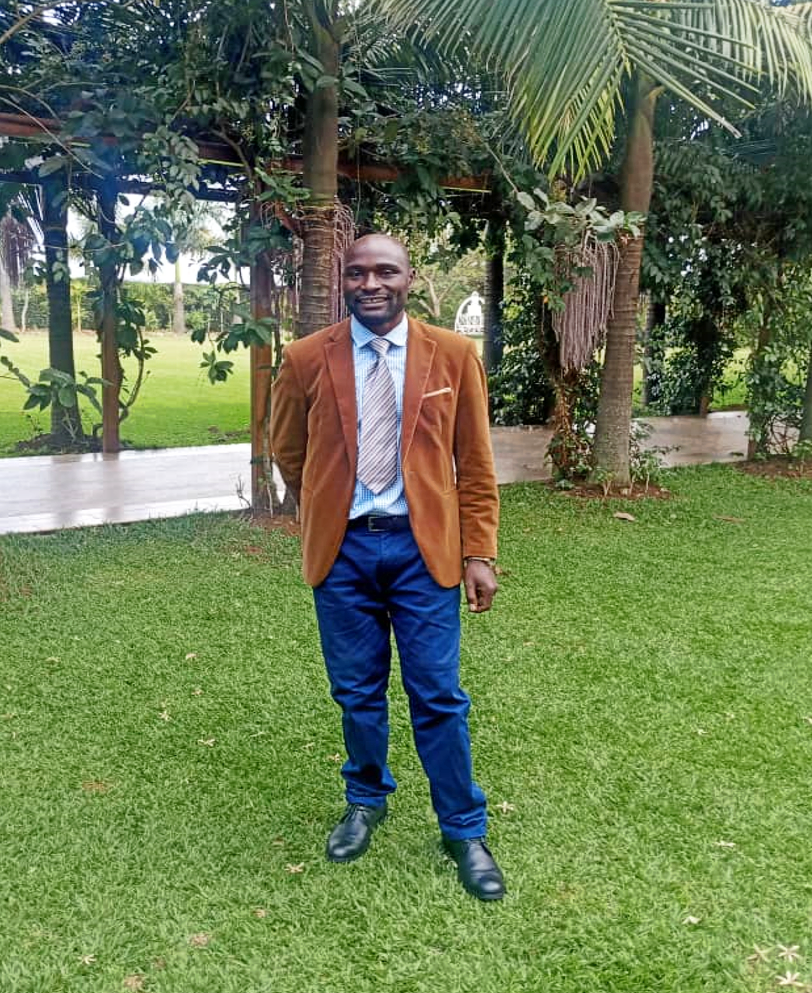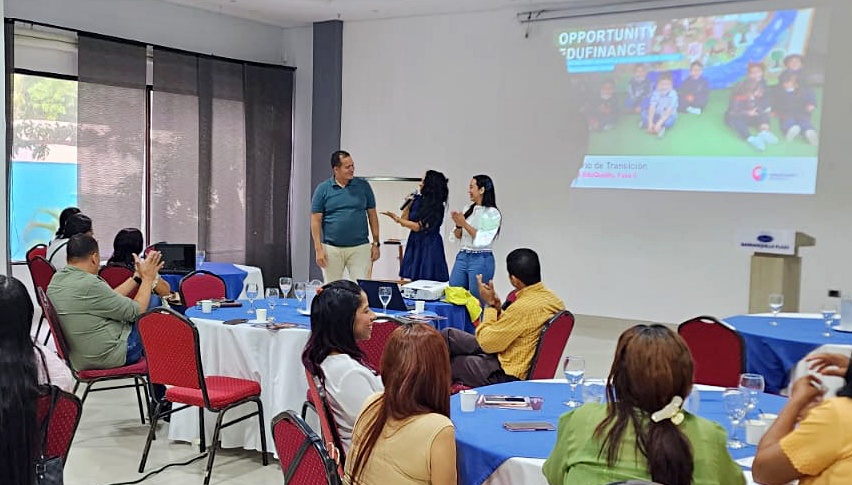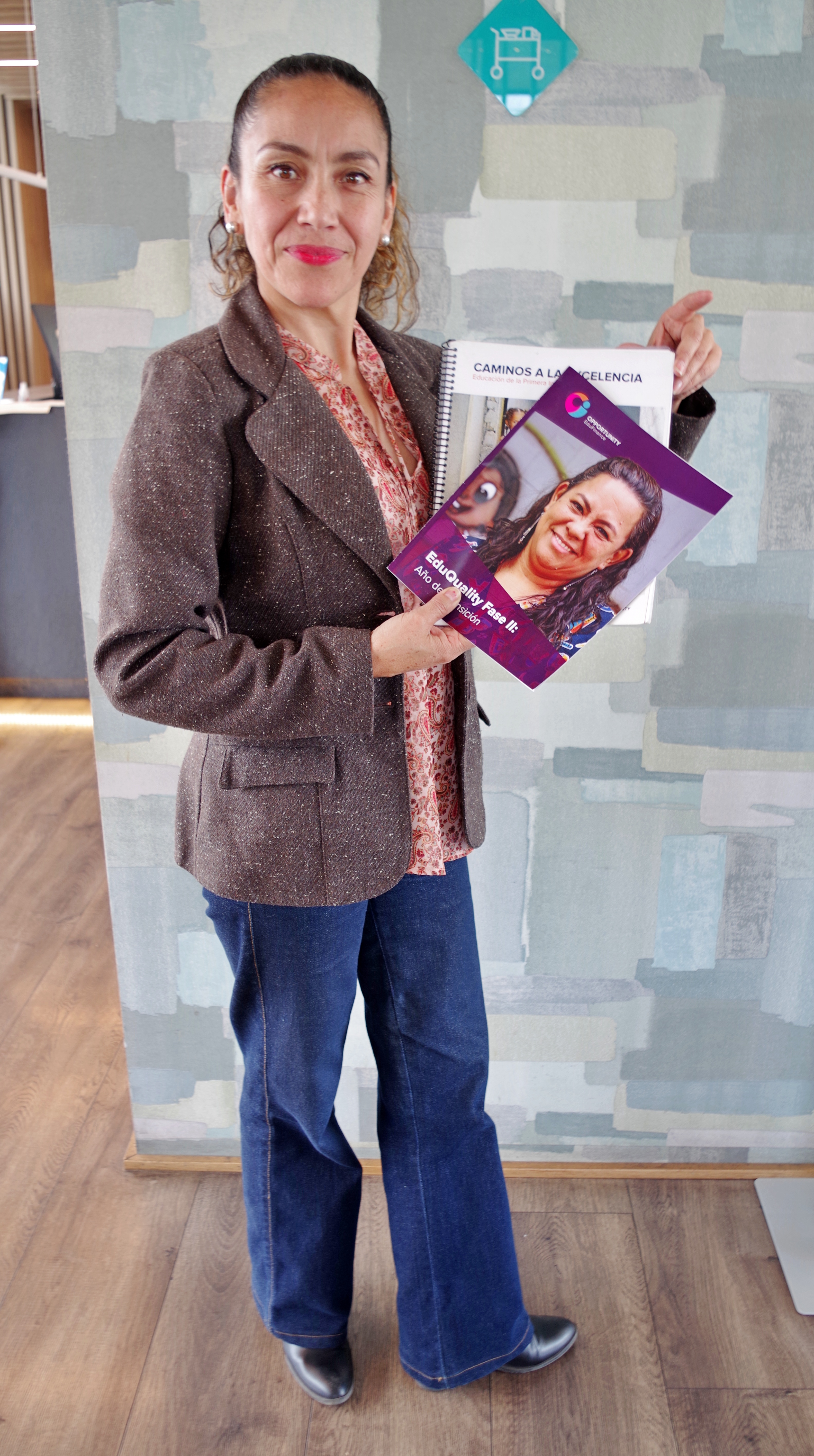Self-Improving School Systems: Implementing Phase II of the EduQuality Program

TRANSITION SEMINAR - MUSANZE, RWANDA
Opportunity EduFinance offers a holistic three-year school development initiative, known as the 'EduQuality Program.’ By partnering with local affordable non-state schools, EduQuality aims to enhance the quality of education for children while fostering an enabling environment for learning.
To sustain the impact achieved since 2021 in ‘Phase I’, EduQuality plans to implement one additional year of programming termed the ‘transition year,’ or Phase II of the EduQuality program. In this phase, schools that have completed the first three years will continue to implement the core EduQuality interventions independently, with reduced involvement from Education Specialists.
Phase II marks a significant milestone in the journey toward fostering self-improving school systems. Seminars at the start of Phase II are a pivotal component of this phase, serving as a bridge to transition schools between the intensive support provided by Education Specialists in Phase I and the school autonomy expected in Phase II.
Self-Improving School System (SISS)
According to David Hargreaves (2011), a self-improving school system (SISS) is a collaborative effort where school improvement and professional development are intertwined in the life and work of a school. The SISS indicators include the creation of clusters, schools providing their own solutions, stimulating co-construction of schools, and the commitment of key leaders to a common purpose.
With approximately 300 school partners in Kenya, Rwanda, Tanzania, and Colombia that have completed Phase I of the EduQuality program, the transition to Phase 2 signifies a shift towards greater self-reliance and sustainability. Phase II aims to validate the efficacy of the program model by assessing schools' ability to independently lead improvement and sustain collaborative efforts without constant external support.
Objectives of EduQuality Phase II
The primary objectives of Phase II are multifaceted, and include:
1. Self-Improvement Testing: Assessing whether schools can function as self-improving ecosystems after receiving three years of support.
2. Gradual Handover: Facilitating a gradual handover of responsibilities from Education Specialists to school leaders while maintaining a basic level of support and monitoring.
3. Cluster Collaboration: Fostering continued collaboration among schools within clusters, encouraging knowledge sharing and best practices.
The Phase II strategy outlines a plan to ensure school partners’ sustained progress towards quality improvements. ‘Transition’ seminars kickstart the year, providing a recap of the past three years and presenting the Phase II plan. Key components of the strategy include the identification of school ‘Centers of Excellence’, independently led cluster meetings, School Development Plan (SDP) completion, school visits, and finally ‘offboarding’ seminars.
Transition Seminars
Transition seminars serve as orientation events for school leaders, outlining the objectives and expectations of Phase II. These seminars provide a platform for educators to reflect on their journey, share achievements, and set goals for the upcoming phase. Through interactive sessions and testimonials from participating schools, the seminars emphasize the importance of self-sufficiency and collaborative learning.

The transition seminar has linked us from Phase I to Phase II. It has given us a framework of what we must do in Phase II and helps us focus on organizational objectives.” - Bukenya Edouard, School Leader, Morning Star Academy, Rwanda
School Centers of Excellence
A key outcome of Phase II is the identification of Centers of Excellence within the program. These schools, distinguished by their exemplary performance and adherence to program criteria, will serve as beacons of leadership within their respective clusters. School leaders and teacher mentors from Centers of Excellence play a pivotal role as EduQuality alumni co-facilitators, supporting the training and development of educators in new EduQuality school partner cohorts.
The criteria for schools being recognized as Centers of Excellence include objective self-assessment, completion of quality School Development Plans, successful multi-stakeholder engagement, demonstrated leadership facilitating cluster meetings, support for teacher professional development, and successful completion of the School Leadership Professional Development (SLPD) training modules.

TRANSITION SEMINAR - BARRANQUILLA, COLOMBIA

We have consolidated all the knowledge and experience from the EduQuality program leaders. And we affirm our work with commitment, responsibility and innovation. We will continue moving forward with full certainty of excellent work" - Grace Mendieta, School Leader, Jardín Infantil Campestre Pequeñitos y Pequeñitas de Jesús, Bogota, Colombia
TRANSLATION: "Consolidamos todo el conocimiento, y la experiencia de todo el programa de mejoramiento de calidad educativa.... Y afirmamos nuestros quehaceres con compromiso, responsabilidad, seguridad e inovacion. Seguiremos adelante y con plena certeza de una excelente formación." - Grace Mendieta, School Leader, Jardín Infantil Campestre Pequeñitos y Pequeñitas de Jesús, Bogota, Colombia
The Way Forward
Opportunity EduFinance is excited to continue this journey with our school partners in this transitional year, helping schools move towards self-reliance and sustained quality improvement best practices. Phase II of the EduQuality program has commenced in four countries: Kenya, Rwanda, Tanzania, and Colombia. Plans are underway to expand Phase II to additional countries in the coming months as they complete Phase I, including Ghana, Zambia, Uganda, the DRC, and Nigeria.
As EduQuality transitions into Phase II, we not only reflect on the significant achievements and success of our school partners in Phase I, but also envision a future where schools are empowered to drive sustainable change within an active self-improving school system. We anticipate this ‘transition year’ will be a pivotal opportunity to emphasize peer collaboration, commitment to school self-improvement, and the emergence of Centers of Excellence as guiding lights for educational excellence within their wider communities.
Read our blog on assessing EduQuality partner school progress in quality improvements here!